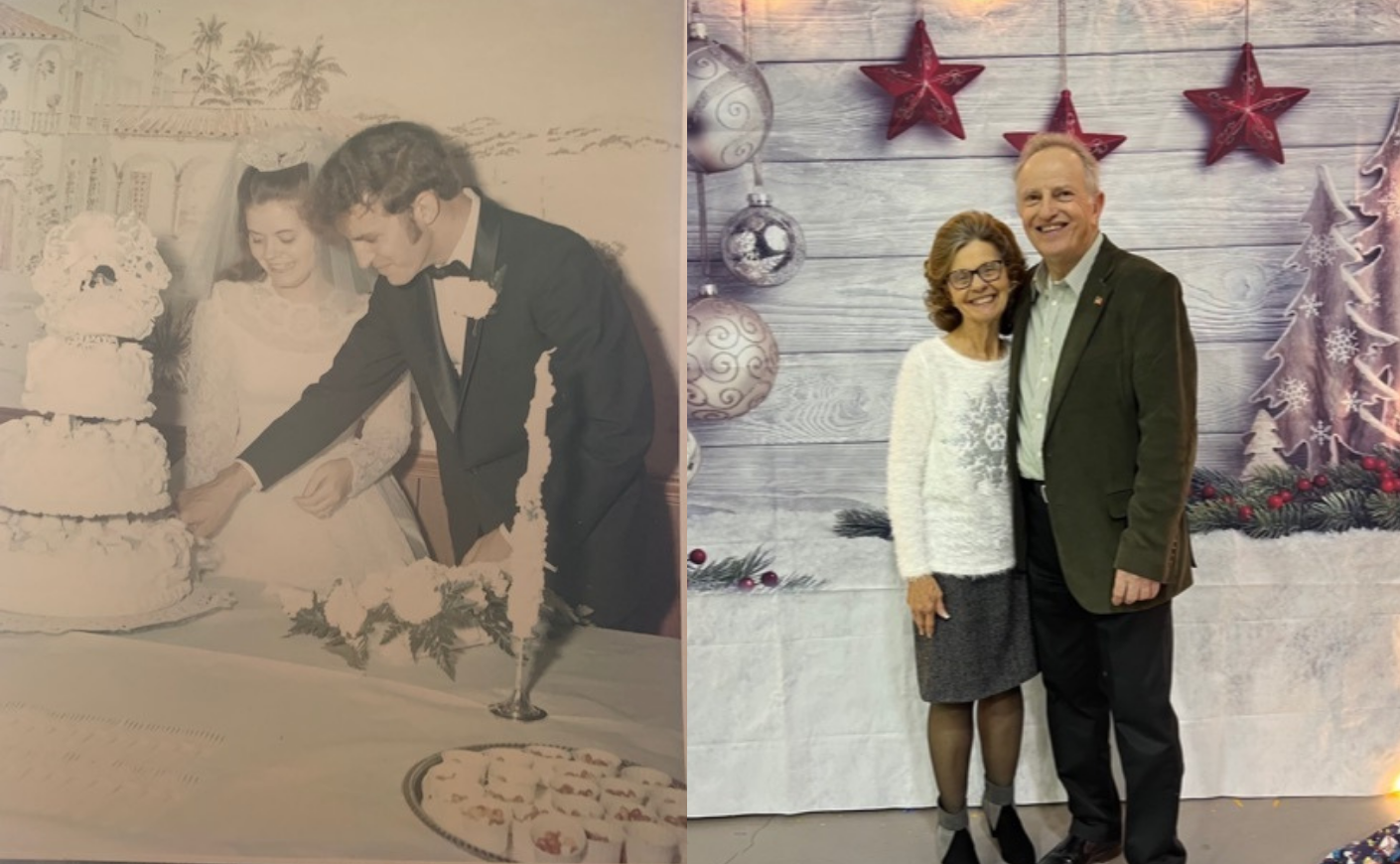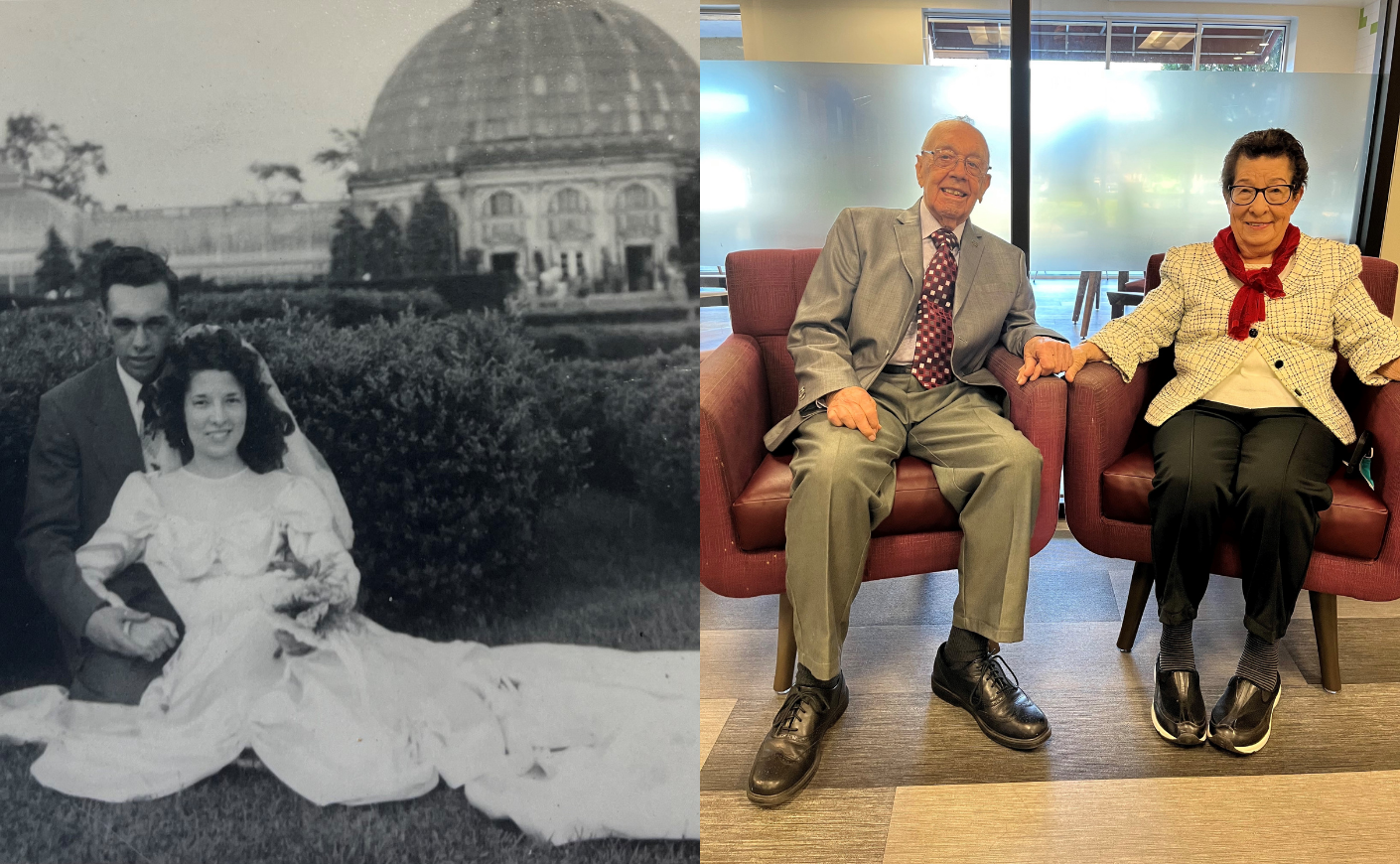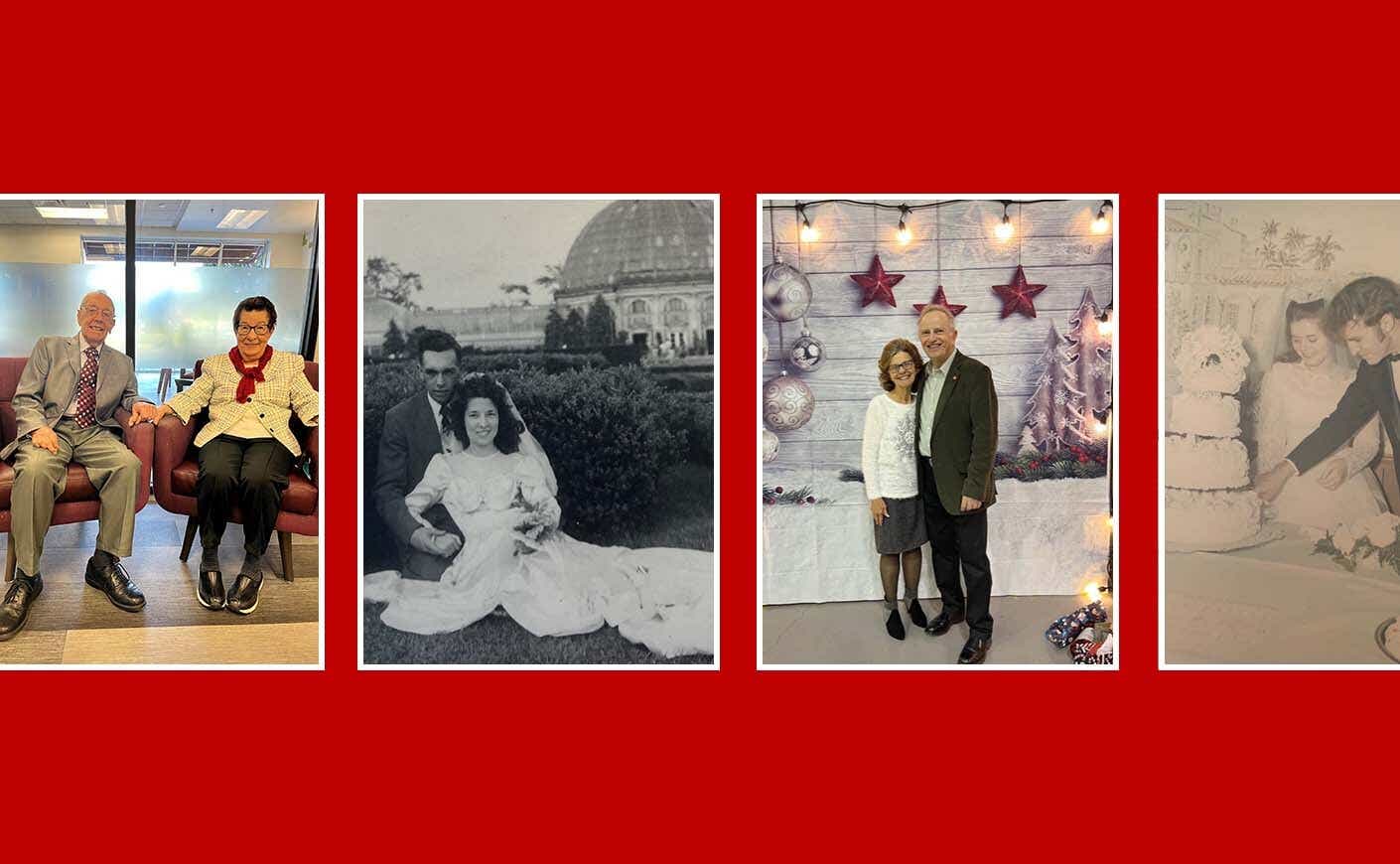Oscar Wilde once wrote, “with age comes wisdom.” So who better to ask for relationship advice than two couples who’ve been married for a combined 120 years? (That’s more than a century's worth of love savvy.) The U.S. has the sixth highest divorce rate in the world — between 40 and 50 percent of marriages end in divorce. But making love last in the long run isn’t impossible — and these two couples prove that.
Jimmy and Debbie DeBusk from Knoxville, TN, will celebrate 52 years of marriage this September. On their first date, they watched the Fourth of July fireworks together; a year and a half later, they got married on Debbie’s 18th birthday. Now they’ve got two children, five grandchildren, and two great-grandchildren.

Robert and Rosie Shaffer met as sophomores in high school and got married a year after graduation. They’re from Hastings, MI, and celebrated 70 years of marriage in 2022. Self-described snowbirds, they love spending winters in Florida and have visited 16 countries together over the years. “My husband is always planning little trips and fun things,” says Mrs. Shaffer.

We asked these pairs to tell us their secrets for making a relationship thrive. From knowing when to let little squabbles go to socializing with friends and keeping up with hobbies, they’ve got the know-how any couple needs.
Things can’t always be even
Some say relationships should be 50/50, but Jimmy DeBusk believes differently. “One day, or week, it might be 20/80 or 70/30,” he says. “There are going to be days when you might not be up to a 50/50 split, and your partner needs to take over. It’s a give and take.”
That’s when patience is key. “Sometimes people get married and they expect too much of the other partner and they're not willing to give,” says Mr. DeBusk. “You have to be willing to do that.”
Honor your commitment
“Nowadays, people go into marriage without really thinking about the commitment they're making. You have to realize that you’re committing to this person,” says Debbie DeBusk. “There will be times when you feel like I'm done with this, but you have to ride it out and not throw in the towel too quickly — because, in the long run, it's worth it.”
If things get extra-tough, there’s no need to shoulder the burden alone: Don’t shy away from marriage counseling if it feels right. “Hang on and get help if you need it,” says Rosie Shaffer. (And if you or a loved one do find yourself in a toxic relationship, there are lots of resources available online.)
Lean on your faith
Staying active in their church is one of the DeBusks’ keys to success. Their faith helps guide their relationship — especially during rocky times. Research even suggests that regularly attending church as a couple is associated with 50 percent lower divorce rates later in life. “Lean on each other, put your trust in God, and let Him work out situations,” says Mrs. DeBusk. And believe in the power of prayer. “We believe in praying about anything, no matter how big or small,” says Mr. DeBusk.
Prioritize time with friends
Keeping love alive at home sometimes means expanding your network in the outside world. Both couples love visiting their local Humana Neighborhood Centers to meet friends and socialize. Before the pandemic, Mrs. DeBusk went every day to take a class — from yoga to cooking to sewing — while Mr. DeBusk met friends to play cards. “It feels good to get out of the house and be around other people. We love the socialization aspect of being there,” says Mrs. DeBusk. “Staying inside and not being around other people just makes you feel blah.” (Even worse, social isolation in older adults can actually lead to dementia and even premature death.)
The Shaffers use their visits to their Humana Neighborhood Center to catch up on the news of the day and see other welcoming faces. “We love meeting new people there — we’ve made a lot of new friends,” says Mr. Shaffer.
Stay financially fit
Some practical advice both couples shared? Be wise with your money. “Don’t get head over heels in debt, because then you have to take care of a lot of logistical things when you could be spending more time with each other,” says Mr. Shaffer.
Mr. DeBusk agrees: Early on in his career, his company went on strike often, and there were times the couple had no steady income. “Things can get hectic and nerves can get on edge,” says Mr. DeBusk. “You wonder how you’ll take care of the next house or car payment. So you have to be wise with money.” And it doesn’t hurt if you’ve got a financial whiz at home, he explains: "Rosie is the best bookkeeper there is.”
Learn how to get along
It’s been said countless times, but it still rings true: Don’t sweat the small stuff, because trying to be "right" can sometimes get in the way of being happy. “We learned how to get along because it could be your way or my way,” says Mr. Shaffer. “But some things you just have to brush off your shoulder and say It’s not worth it.”
Stay busy with hobbies
Having hobbies helps sustain relationships, especially if you do them as a team. Over the years, the Shaffers flipped 26 houses together — she helped decorate and choose paint colors, and he worked on the plumbing, wiring, and roofing. An avid painter, Mrs. Shaffer says she doesn’t let a week go by without creating some art. “Activities and hobbies get you up and out,” a healthy turn for any relationship, says Mrs. Shaffer. “That’s the key — staying busy, happy, and positive.”
The DeBusk’s love to visit small historical towns across the country (Lynchburg, TN, was a particular favorite). They also volunteer in tandem, by visiting elderly people in the community every month. “It gives you a feeling of satisfaction to know that you're looking after people and making sure they have what they need,” says Mrs. DeBusk. “It makes you appreciate the fact that you’re able to get out and help other people.”
Humana Neighborhood Centers offer a unique calendar of special events, programs, and activities designed to help improve physical and mental health. Most services can be used by anyone at no cost, and Humana membership is not required to participate in most activities.
Click here to find a Neighborhood Center near you. You can also check out Humana Neighborhood Center online health and wellness classes, easily accessed online in the comfort of your home.












